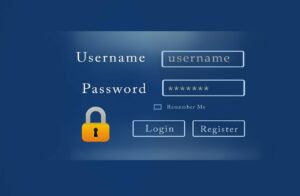 Your phone rings and someone asks you about an email you sent (that you didn’t actually send). Or you look into your sent folder only to discover hundreds of identical emails entreating your contacts to open an attachment, click on a link or send money in the form of gift cards. Discovering, with a sinking feeling, that your email has been hacked is a most unwelcome surprise. Here are the steps you should take to recover from a compromised email account.
Your phone rings and someone asks you about an email you sent (that you didn’t actually send). Or you look into your sent folder only to discover hundreds of identical emails entreating your contacts to open an attachment, click on a link or send money in the form of gift cards. Discovering, with a sinking feeling, that your email has been hacked is a most unwelcome surprise. Here are the steps you should take to recover from a compromised email account.
Act Swiftly
As soon as you suspect your email has been hacked, don’t delay. Take prompt action to minimize the potential harm caused by the breach. Change your email account password immediately to prevent further unauthorized access.
Enable Two-Factor Authentication (2FA)
Enable two-factor authentication on your email account if you haven’t already. This adds an extra layer of security by requiring a second verification step, such as a unique code sent to your phone, when logging in. 2FA makes it significantly harder for hackers to gain access to your account, even if they manage to obtain your password.
Scan Your Computer
Run a thorough antivirus scan on your computer and other devices connected to your email account. Malware or keyloggers might have facilitated the breach, so it’s important to identify and remove any malicious software. Update your antivirus software to ensure you have the latest protection against emerging threats.
Review Account Settings
Check your email account settings for any suspicious changes made by the hacker. Pay close attention to email forwarding rules, auto-replies, or any other modifications that could compromise your privacy or security. Disable or delete any unauthorized settings and restore your account to its original state.
Notify Your Contacts
Inform your contacts about the hacking incident and advise them to be cautious of any emails they receive from your account. Hackers might attempt to send spam or phishing emails using your compromised account. Advise your contacts to avoid clicking on any suspicious links or downloading attachments from your compromised email address.
Update Passwords On Other Accounts
If you’ve used the same password for other online accounts, change them immediately. It’s a good practice to use unique, strong passwords for each account to prevent potential cascading breaches. Consider using a reputable password manager to generate and store strong, complex passwords securely.
Be Vigilant Against Phishing Attempts
Stay alert for phishing attempts after your email has been hacked. Hackers may try to exploit the situation further by sending you deceptive emails that appear legitimate. Always double-check email senders, avoid clicking on suspicious links, and refrain from providing personal information unless you can verify the legitimacy of the request.
If you need help securing your email for your home or business, give us a call at Mankato Computer Technology.